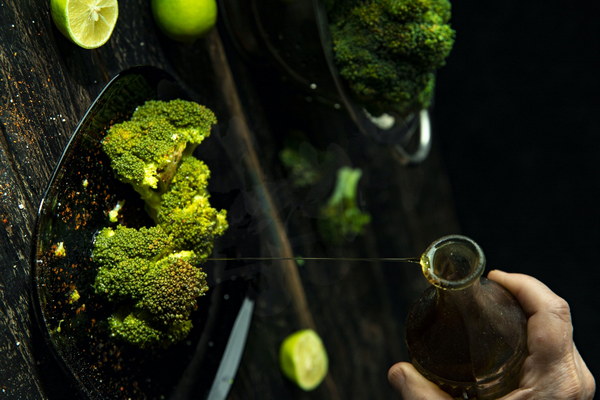Nourishing Diets for Bladder Cancer A Comprehensive Guide to Healthy Eating
Bladder cancer is a significant health concern, and while medical treatments are crucial, a well-balanced diet can complement these efforts. A nourishing diet for bladder cancer patients not only helps in managing symptoms but also supports the body's overall well-being. This article provides a comprehensive guide to healthy eating for individuals diagnosed with bladder cancer.
1. Balanced Nutrition
A balanced diet is essential for maintaining optimal health. It should include a variety of nutrients such as vitamins, minerals, proteins, carbohydrates, and healthy fats.
- Vitamins and Minerals: Vitamin C, vitamin E, selenium, and calcium have been shown to have protective effects against bladder cancer. Fruits, vegetables, nuts, and whole grains are excellent sources of these nutrients.
- Proteins: Lean proteins, such as chicken, turkey, fish, and legumes, are important for muscle repair and growth. Ensure to consume a sufficient amount of protein to support the body's healing process.
- Carbohydrates: Complex carbohydrates, such as whole grains, legumes, and vegetables, provide sustained energy and fiber, which helps in digestion.
- Healthy Fats: Avocados, nuts, seeds, and olive oil are rich in healthy fats that can support heart health and reduce inflammation.
2. Hydration
Staying hydrated is crucial for bladder cancer patients. Drinking plenty of water helps in flushing out toxins and reducing the risk of urinary tract infections. Aim to drink at least eight glasses of water per day.
3. Antioxidant-Rich Foods

Antioxidants help protect cells from damage caused by free radicals, which can contribute to cancer growth. Foods rich in antioxidants include:
- Berries: Blueberries, strawberries, raspberries, and blackberries are excellent sources of antioxidants.
- Green Tea: Green tea contains high levels of catechins, which have been shown to inhibit the growth of cancer cells.
- Dark Chocolate: Dark chocolate contains flavanols, which have anti-inflammatory properties.
4. Fiber-Rich Foods
Fiber helps in maintaining bowel health and reducing the risk of constipation. Incorporate the following fiber-rich foods into your diet:
- Beans: Kidney beans, black beans, and pinto beans are excellent sources of fiber.
- Whole Grains: Oats, brown rice, and quinoa are high in fiber and can help in reducing blood sugar levels.
- Vegetables: Broccoli, spinach, and carrots are rich in fiber and essential nutrients.
5. Limit Certain Foods
Some foods may increase the risk of bladder cancer or exacerbate symptoms. It is essential to limit the intake of the following:
- Processed Foods: High in sodium, preservatives, and unhealthy fats, processed foods can contribute to inflammation and increase the risk of cancer.
- Red Meat: High in saturated fats, red meat has been linked to an increased risk of bladder cancer.
- Alcohol: Alcohol consumption has been associated with an increased risk of bladder cancer. It is best to avoid alcohol or limit intake to moderate amounts.
6. Supplements
While a balanced diet is essential, some individuals may require supplements to meet their nutritional needs. Consult with a healthcare provider before starting any supplement regimen.
In conclusion, a nourishing diet can play a significant role in managing bladder cancer. By incorporating a variety of nutrients, staying hydrated, and limiting certain foods, individuals can support their body's healing process and improve overall well-being. Remember, it is crucial to consult with a healthcare provider before making any significant changes to your diet.









